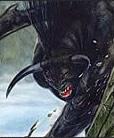MalinornëFAQ Admin, Quenya Moderator & EldameldëPosts: 1205 Send Message |
|
| ElhaymGreenleaf |
|
| Mellon |
|
MalinornëFAQ Admin, Quenya Moderator & EldameldëPosts: 1205 Send Message |
|
gwendethAccounts Admin, Sindarin Mod & Head Stargazer of VardaPosts: 5808 Send Message |
|
| Naneth |
|
gwendethAccounts Admin, Sindarin Mod & Head Stargazer of VardaPosts: 5808 Send Message |
|
| Naneth |
|
gwendethAccounts Admin, Sindarin Mod & Head Stargazer of VardaPosts: 5808 Send Message |
|
| Naneth |
|
gwendethAccounts Admin, Sindarin Mod & Head Stargazer of VardaPosts: 5808 Send Message |
|
| Iavas |
|
gwendethAccounts Admin, Sindarin Mod & Head Stargazer of VardaPosts: 5808 Send Message |
|
| Iavas |
|
gwendethAccounts Admin, Sindarin Mod & Head Stargazer of VardaPosts: 5808 Send Message |
|
| Mellon |
|
gwendethAccounts Admin, Sindarin Mod & Head Stargazer of VardaPosts: 5808 Send Message |
|
| Iavas |
|
gwendethAccounts Admin, Sindarin Mod & Head Stargazer of VardaPosts: 5808 Send Message |
|
| Iavas |
|
gwendethAccounts Admin, Sindarin Mod & Head Stargazer of VardaPosts: 5808 Send Message |
|
MalinornëFAQ Admin, Quenya Moderator & EldameldëPosts: 1205 Send Message |
|
gwendethAccounts Admin, Sindarin Mod & Head Stargazer of VardaPosts: 5808 Send Message |
|
MalinornëFAQ Admin, Quenya Moderator & EldameldëPosts: 1205 Send Message |
|
MalinornëFAQ Admin, Quenya Moderator & EldameldëPosts: 1205 Send Message |
|
gwendethAccounts Admin, Sindarin Mod & Head Stargazer of VardaPosts: 5808 Send Message |
|
MalinornëFAQ Admin, Quenya Moderator & EldameldëPosts: 1205 Send Message |
|
gwendethAccounts Admin, Sindarin Mod & Head Stargazer of VardaPosts: 5808 Send Message |
|
| Iavas |
|
gwendethAccounts Admin, Sindarin Mod & Head Stargazer of VardaPosts: 5808 Send Message |
|
gwendethAccounts Admin, Sindarin Mod & Head Stargazer of VardaPosts: 5808 Send Message |
|
gwendethAccounts Admin, Sindarin Mod & Head Stargazer of VardaPosts: 5808 Send Message |
|
| Iavas |
|
MalinornëFAQ Admin, Quenya Moderator & EldameldëPosts: 1205 Send Message |
|
| Iavas |
|
 Author
Author








 RE: Translate poems here
RE: Translate poems here



